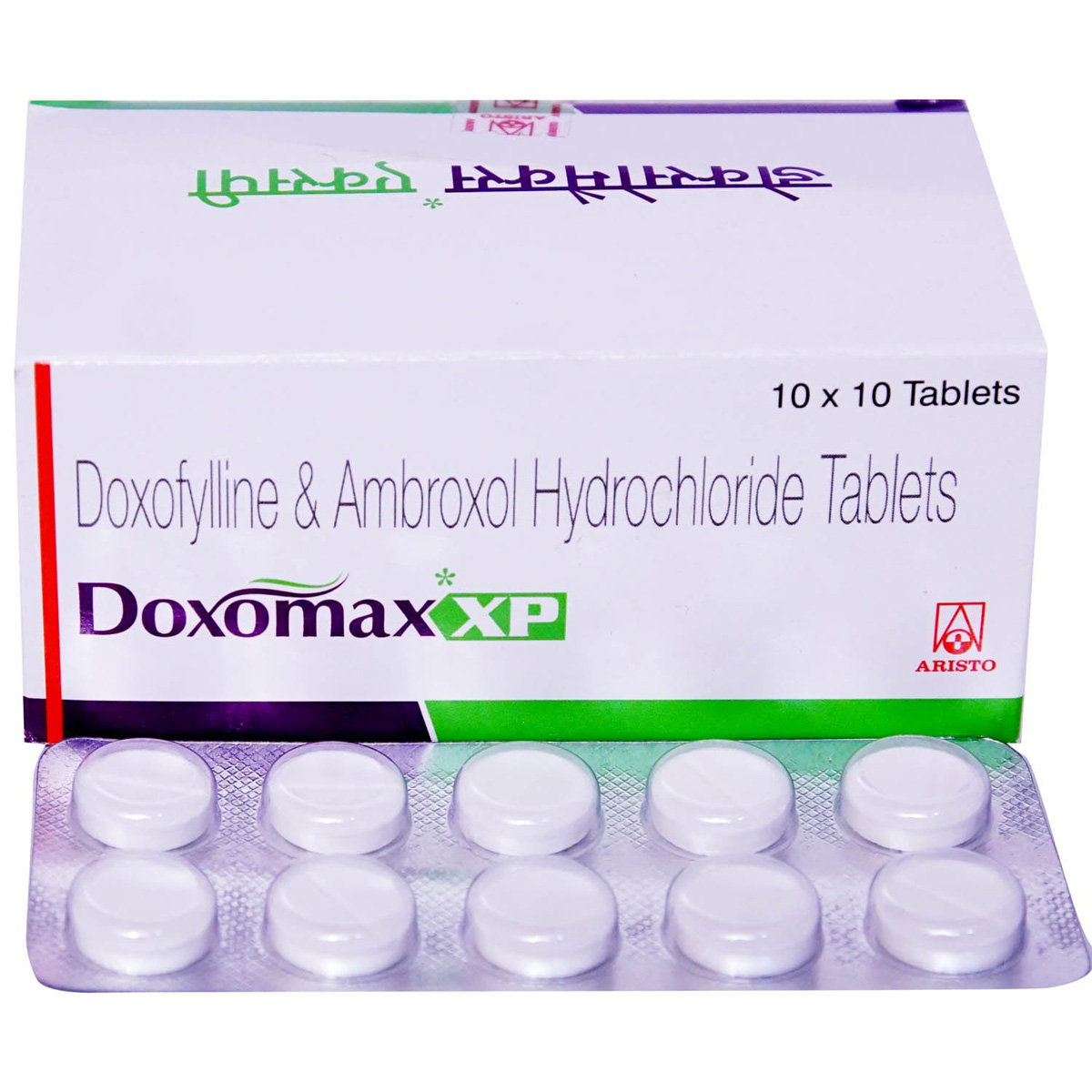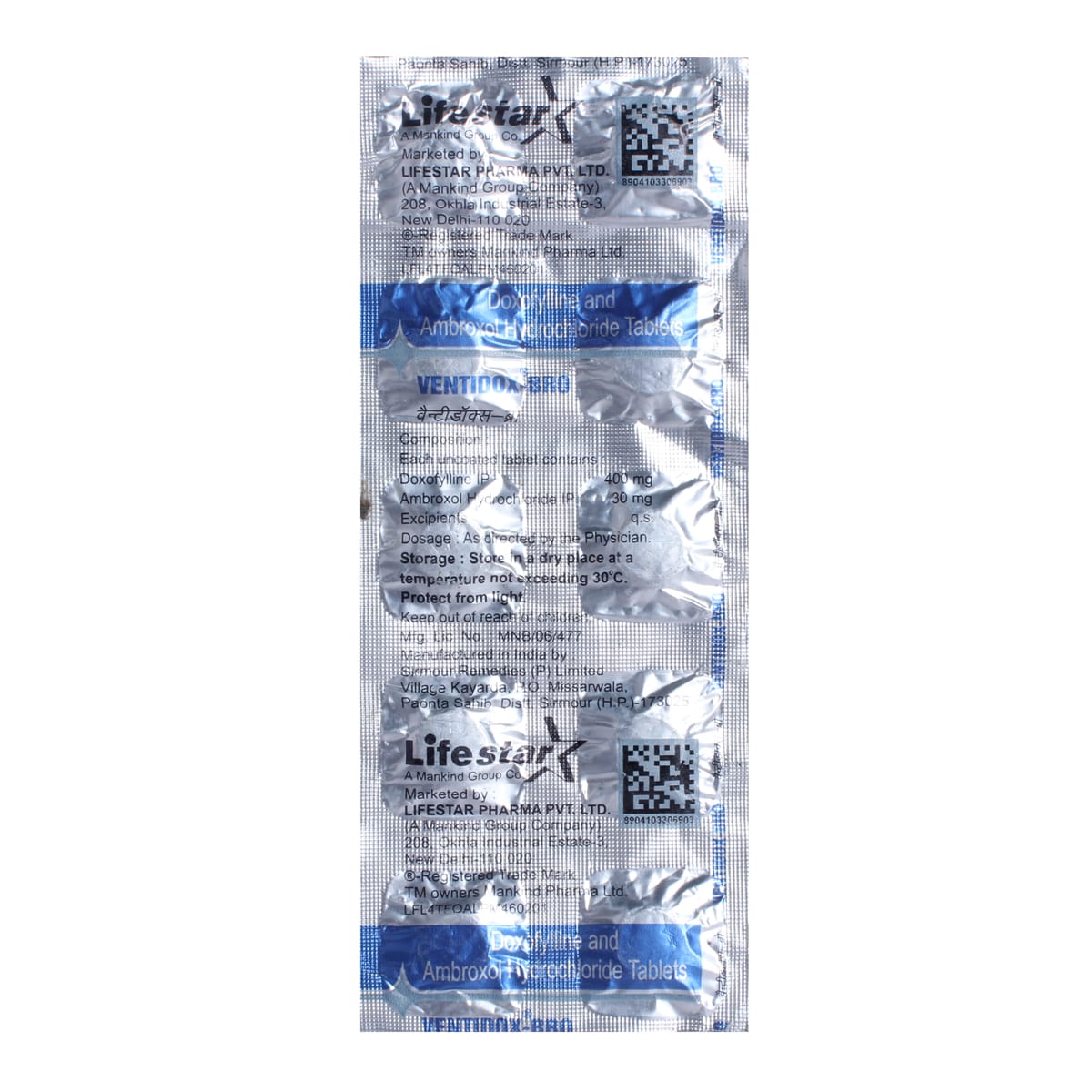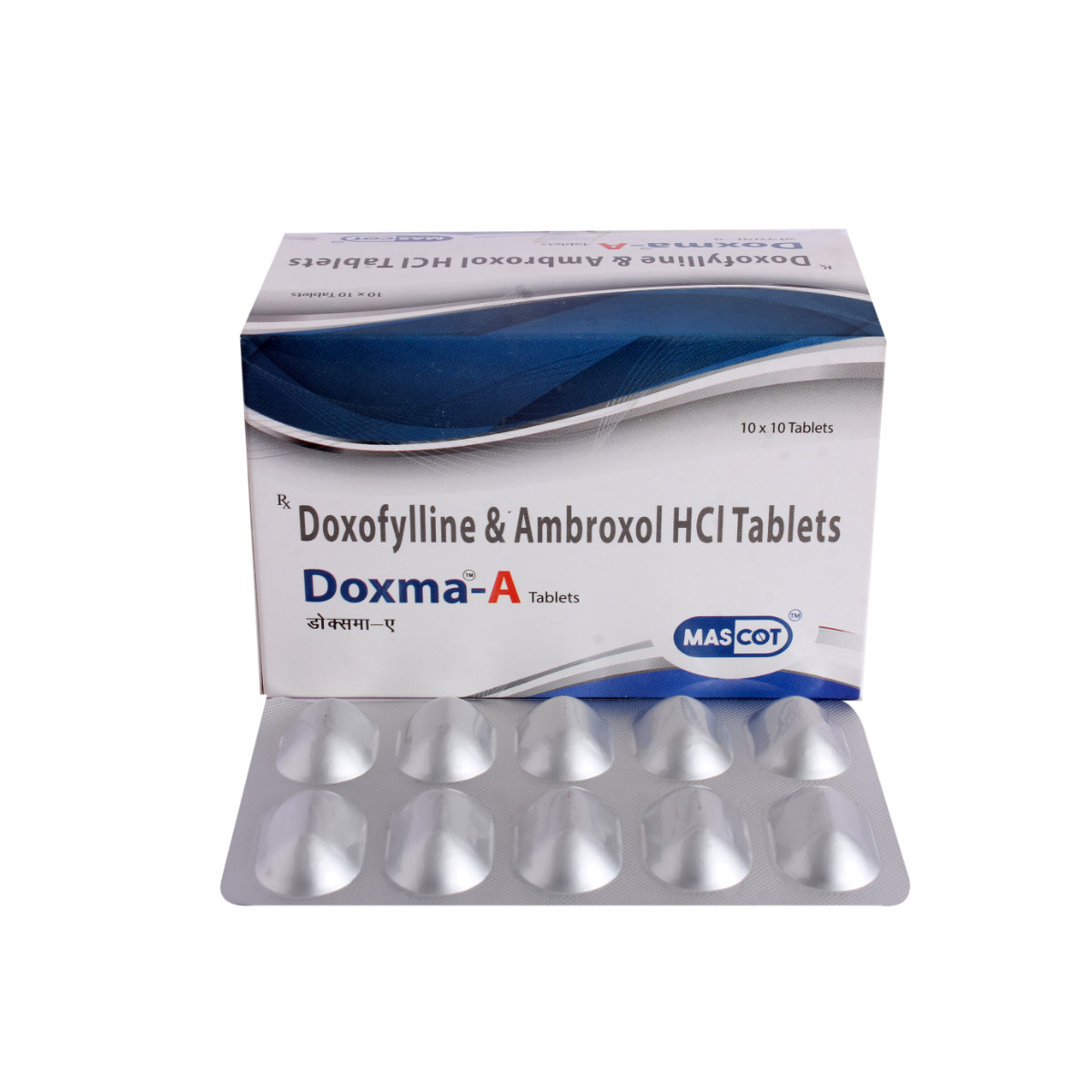Dofasma-A Tablet

MRP ₹106
(Inclusive of all Taxes)
₹15.9 Cashback (15%)
know your delivery time
Provide Delivery Location
Composition :
Manufacturer/Marketer :
Consume Type :
Expires on or after :
Return Policy :

Secure Payment

Trusted by 8 Crore Indians

Genuine Products
Therapeutic Class
Country of origin
Manufacturer/Marketer address
Disclaimer
Alcohol
Safe if prescribed
Avoid drinking alcohol while taking Dofasma-A Tablet as it can worsen your condition, causing sleep disturbances (sleep apnoea).
Pregnancy
Consult your doctor
There is limited data on how Dofasma-A Tablet affects pregnancy. Please consult your doctor if you are planning to conceive or are already pregnant before starting Dofasma-A Tablet .
Breast Feeding
Consult your doctor
There is limited data on how Dofasma-A Tablet affects breastfeeding. However, Doxofylline is contraindicated in breastfeeding. Please consult your doctor if you have concerns.
Driving
Safe if prescribed
Do not drive or operate machinery if you experience drowsiness, increased/uneven heart rate, and shakiness while using Dofasma-A Tablet . This may affect your ability to drive. Seek medical attention if the symptoms persist longer.
Liver
Consult your doctor
Dofasma-A Tablet should be used with caution in patients with liver diseases. Let your doctor know if you have any history of liver diseases or pre-existing liver problems. Your doctor will weigh the benefits and potential risks before prescribing Dofasma-A Tablet .
Kidney
Consult your doctor
Dofasma-A Tablet should be used with caution in patients with kidney diseases. Let your doctor know if you have any history of kidney diseases. Your doctor will weigh the benefits and potential risks before prescribing Dofasma-A Tablet .
Children
Safe if prescribed
Dofasma-A Tablet is not recommended for use for children less than 6 years of age. Your doctor will decide the dose depending on the condition of the child's disease and age.
Product Substitutes
About Dofasma-A Tablet
Dofasma-A Tablet is a respiratory combination medication primarily used to treat cough associated with respiratory disorders like asthma and chronic obstructive pulmonary disease (COPD). Asthma is a breathing problem in which airways narrow, swell, and produce extra mucus, leading to difficulty breathing. COPD is a group of lung diseases with emphysema (shortness of breath) and chronic bronchitis (inflammation of the lining of your bronchial tubes). Cough occurs as a reflex action in the throat when mucus or any other foreign irritant is in it.
The Dofasma-A Tablet consists of two medicines: Doxofylline (antibiotic) and Ambroxol (dilutes viscous cough). Doxofylline comes into the category of bronchodilators that relax the muscles of the airways and can widen up and breathe easily. On the other hand, Ambroxol is an 'expectorant' (promotes the secretion of sputum/cough) and a 'mucolytic agent' (makes sputum less viscous) to make breathing easier in asthma and COPD patients who have difficulty in breathing.
Take Dofasma-A Tablet preferably with food to avoid stomach upset and swallow whole with a glass of water. Do not crush, chew, or break it. Your doctor will recommend how often you take Dofasma-A Tablet based on your medical condition. Some people may experience nausea, taste change, stomach pain, photosensitivity, and numbness in the mouth, tongue, and throat. Most of these side effects of Dofasma-A Tablet do not require medical attention and gradually resolve over time. However, if the side effects persist or worsen, please consult your doctor.
Before using Dofasma-A Tablet tell your doctor if you ever had an allergy to Dofasma-A Tablet have kidney problems, liver problems, swollen food pipe (oesophagitis), lupus disease (an autoimmune disease), muscle disease (myasthenia gravis). Please do not drink alcohol with Dofasma-A Tablet as it may increase unpleasant side effects like drowsiness and dizziness. Dofasma-A Tablet is pregnancy category D (high risk) medicines, so its use in pregnant and nursing mothers is not recommended. Use of Dofasma-A Tablet during tooth development (last half of pregnancy, infancy, and childhood to the age of 8 years) may cause permanent staining of teeth (yellow-grey-brown). Its use should be avoided by pregnant women, breastfeeding mothers, and children below 8 years of age. Do not consume alcohol as it may cause excessive drowsiness when taken along with Dofasma-A Tablet .
Uses of Dofasma-A Tablet
Medicinal Benefits Mweb
Key Benefits
Dofasma-A Tablet is used to treat and prevent respiratory disorders like asthma attacks and chronic obstructive pulmonary diseases (COPD). Dofasma-A Tablet is a combination of two medicines: Doxofylline and Ambroxol. Doxofylline (also known as Doxophylline) belongs to the class of bronchodilators. It works by relaxing muscles and widening the airways of the lungs. It minimizes the lung's airflow obstruction, relieving chest tightness, wheezing, and cough to make breathing easier. While Ambroxol works by thinning and loosening phlegm (mucus) in the lungs, windpipe, and nose. Dofasma-A Tablet breakdown the acid mucopolysaccharide fibres that make the mucous (sputum) thinner and less dense/viscous, removing sputum efficiently by coughing. However, the viscosity of sputum remains low for as long as treatment is maintained.
Directions for Use
Side Effects of Dofasma-A Tablet
- Nausea
- Vomiting
- Taste change
- Stomach pain
- Photosensitivity
- Palpitations
- Headache
- Insomnia
- Dizziness
- Numbness in the mouth, tongue, and throat
- Dryness of mouth or throat
- Taste changes
Drug Warnings
Let your doctor know if you have any allergic reactions to medicines. Please inform your doctor if you have any history of heart, liver, and kidney diseases. Also, tell your doctor if you have a stomach ulcer, seizure (fits), high blood pressure, and diabetes before taking Dofasma-A Tablet . Dofasma-A Tablet causes hypokalaemia (low potassium levels in the blood), therefore should be used with caution in patients with bronchospasm. Special precautions should be taken in patients with hyperthyroidism and epilepsy. Dofasma-A Tablet can cause a rise in blood glucose levels. Hence monitor your blood glucose levels if you have diabetes and inform your doctor so that the dose can be adjusted accordingly. Let your doctor know if you plan to become pregnant or are already pregnant and a lactating mother. If you unexpectedly go into early labour or premature labour (before 9 months) or threatened abortion, do not use Dofasma-A Tablet and consult a doctor.
Drug-Drug Interactions
Drug-Drug Interactions
Login/Sign Up
Drug-Food Interactions
Drug-Food Interactions
Login/Sign Up
Drug-Diseases Interactions
Drug-Diseases Interactions
Login/Sign Up
Drug-Drug Interactions Checker List
- PHENYTOIN
- RIFAMPICIN
- CICLOSPORIN
- CARBAMAZEPINE
- WARFARIN
- ISOTRETINOIN
- VITAMIN A
- CALCIUM
- ZINC+ZINC GLUCONATE
Habit Forming
Special Advise
- It is advised to inform your doctor beforehand if you are using Dofasma-A Tablet and are advised to undergo any blood examinations since Dofasma-A Tablet may cause eosinophilia (increased white blood cell count).
- It is advised to consult a Psychiatrist if you notice any mood changes like suicidal thoughts, aggressive behaviour, anxiety, depression, abnormal dreams, and hallucinations while using Dofasma-A Tablet .
Diet & Lifestyle Advise
- Take Dofasma-A Tablet as directed by the doctor and at regular intervals. Do not use other over-the-counter medications, herbal or vitamin supplements without informing your pharmacist or doctor when you take Dofasma-A Tablet .
- Know your triggers like allergens, such as pollen, dust, and food items that make your asthma severe.
- Quit smoking and avoid passive smoking. Smoking also reduces the effectiveness of the medicine.
- Eat a healthy diet and exercise regularly to strengthen your breathing muscles and boost your immune system.
- Learning breathing exercises will help you move more air in and out of your lungs.
- Drink warm fluids while you take Dofasma-A Tablet to help loosen congestion and lubricate the throat.
All Substitutes & Brand Comparisons
RX
Out of StockAsthamax AX 400mg/30mg Tablet
₹55
(₹4.95 per unit)
48% CHEAPERRX
Out of StockAmphyl D 400mg/30mg Tablet
₹75
(₹6.75 per unit)
29% CHEAPERRX
Doxomax XP Tablet 10's
Aristo Pharmaceuticals Pvt Ltd
₹82
(₹7.39 per unit)
22% CHEAPER

Have a query?
Buy best Respiratory System products by
Cipla Ltd
Lupin Ltd
Glenmark Pharmaceuticals Ltd
Sun Pharmaceutical Industries Ltd
Alkem Laboratories Ltd
Macleods Pharmaceuticals Ltd
Mankind Pharma Pvt Ltd
Zydus Healthcare Ltd
Leeford Healthcare Ltd
Dr Reddy's Laboratories Ltd
Zydus Cadila
Abbott India Ltd
Intas Pharmaceuticals Ltd
Alembic Pharmaceuticals Ltd
German Remedies Ltd
Centaur Pharmaceuticals Pvt Ltd
Ipca Laboratories Ltd
Aristo Pharmaceuticals Pvt Ltd
Pristine Pearl Pharma Pvt Ltd
Wockhardt Ltd
GlaxoSmithKline Pharmaceuticals Ltd
Zuventus Healthcare Ltd
Koye Pharmaceuticals Pvt Ltd
Micro Labs Ltd
Blue Cross Laboratories Pvt Ltd
Medishri Healthcare Pvt Ltd
Med Manor Organics Pvt Ltd
Indiabulls Pharmaceuticals Pvt Ltd
Adonis Laboratories Pvt Ltd
FDC Ltd
Fourrts India Laboratories Pvt Ltd
Tablets India Ltd
J B Chemicals & Pharmaceuticals Ltd
Shreya Life Sciences Pvt Ltd
Divine Savior Pvt Ltd
Indoco Remedies Ltd
Seagull Pharmaceutical Pvt Ltd
Yash Pharma Laboratories Pvt Ltd
Torque Pharmaceuticals Pvt Ltd
Uniza Healthcare Llp
Wings Pharmacuticals Pvt Ltd
Biological E Ltd
Corona Remedies Pvt Ltd
Icarus Health Care Pvt Ltd
Steris Healthcare
Apex Laboratories Pvt Ltd
Geno Pharmaceuticals Pvt Ltd
Navil Laboratories Pvt Ltd
Precept Pharma
Aar Ess Remedies Pvt Ltd
La Renon Healthcare Pvt Ltd
Torrent Pharmaceuticals Ltd
Astra Zeneca Pharma India Ltd
Biochem Pharmaceutical Industries Ltd
Comed Chemicals Ltd
Entod Pharmaceuticals Ltd
Franco Indian Pharmaceuticals Pvt Ltd
Healthgate Pvt Ltd
Intra Life Pvt Ltd
Megma Healthcare Pvt Ltd
Pfizer Ltd
RPG Life Sciences Ltd
Unipark Biotech Pvt Ltd
Votary Laboratories (India) Ltd
Wanbury Ltd
Brinton Pharmaceuticals Ltd
Dolvis Bio Pharma Pvt Ltd
Eisen Pharmaceutical Co Pvt Ltd
Group Pharmaceuticals Ltd
Knoll Pharmaceuticals Ltd
Morepen Laboratories Ltd
Panacea Biotec Ltd
Prevego Healthcare & Research Pvt Ltd
Rnd Laboratories Pvt Ltd
Sanatra Healthcare Ltd
Skn Organics Pvt Ltd
Stedman Pharmaceuticals Pvt Ltd
Thuyam Life Pvt Ltd
Timon Pharmaceuticals Pvt Ltd
Aglowmed Pharmaceuticals Ltd
Ajanta Pharma Ltd
Alniche Life Sciences Pvt Ltd
Bio Warriors Pharmaceucticals Pvt Ltd
Biochemix Health Care Pvt Ltd
Cadila Healthcare Ltd
Cadila Pharmaceuticals Ltd
Caplet India Pvt Ltd
Chemo Healthcare Pvt Ltd
Delcure Life Sciences Ltd
East West Pharma India Pvt Ltd
Elder Pharmaceuticals Ltd
Embiotic Laboratories (P) Ltd
Emcee Pharmaceuticals (P) Ltd
Foregen Healthcare Ltd
Hetero Healthcare Pvt Ltd
Incite Pharmaceuticals
Iva Healthcare Pvt Ltd
Kepler Healthcare Pvt Ltd
Kristal Pharmaceuticals
Lincoln Pharmaceuticals Ltd




